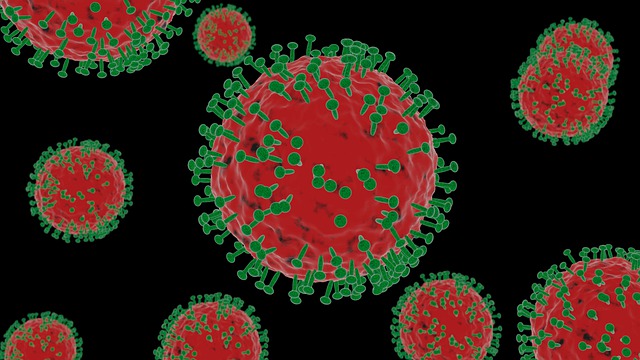Association Between SARS-CoV-2 Vaccination and Healthcare Contacts for Menstrual Disorders and Bleeding in Women Before and After Menopause: Nationwide Registry-Based Cohort Study Summary Goals To evaluate the risks of any menstrual disorders and bleeding after SARS-CoV-2 vaccination in premenopausal or postmenopausal women. Design A nationwide registry-based cohort study. Setting All specialized inpatient and outpatient care in Sweden from December 27, 2020 to February 28, 2022. A subset covering primary care for 40% of the Swedish female population was also included. Participants 2,946,448 Swedish women aged 12 to 74 years were included . Pregnant women, women living in nursing homes, and women with a history of any menstrual or bleeding disorder, breast cancer, female genital organ cancer, or who underwent a hysterectomy between January 1, 2015 and 2015 were excluded. on December 26, 2020. Interventions Vaccination against SARS-CoV-2, by vaccine product (BNT162b2, mRNA-1273 or ChAdOx1 nCoV-19 (AZD1222)) and dose (unvaccinated and first, second and third doses) during two time windows (one to seven days, considered the control period, and 8-90 days). The main measures Health contact (hospital admission or visit) due to menstrual disturbance or bleeding before or after menopause (diagnosed with the International Statistical Classification of Diseases and Related Health Problems, Tenth Revision codes N91, N92, N93, N95). Results 2,580,007 (87.6%) of 2,946,448 women received at least one SARS-CoV-2 vaccine and 1,652,472 (64.0%) 2,580,007 vaccinated women received three doses before the end of follow-up . The highest risks of bleeding in postmenopausal women were observed after the third dose, in the risk window of one to seven days (hazard ratio 1.28 (95% confidence interval: 1.01 to 1.62)) and in the risk window of 8 to 90 days (1.25). (1.04 to 1.50). The impact of adjustment for covariates was modest. The risk of postmenopausal bleeding suggested an increased risk of 23 to 33% after 8 to 90 days with BNT162b2 and mRNA-1273 after the third dose, but the association with ChAdOx1 nCoV-19 was less clear. For menstrual disorders or bleeding in premenopausal women, adjustment for covariates almost completely eliminated the weak associations observed in the crude analyses. Conclusions Weak and inconsistent associations between SARS-CoV-2 vaccination and healthcare contacts were observed for bleeding in postmenopausal women, and even less evidence of an association was recorded for menstrual disorders or bleeding in premenopausal women. These findings do not provide substantial support for a causal association between SARS-CoV-2 vaccination and healthcare contacts related to menstrual or bleeding disorders. |
Comments
A Swedish study of almost 3 million women published today by The BMJ finds no evidence of an increased risk of menstrual changes after vaccination against Covid-19.
Weak and inconsistent associations between Covid-19 vaccination and healthcare contact were found for postmenopausal bleeding and were even less consistent for menstrual disorders and premenstrual bleeding.
These findings do not provide any substantial support for a causal association between Covid-19 vaccination and diagnoses related to menstrual or bleeding disorders, the researchers say.
Many women have reported changes to their periods after a Covid-19 vaccine, such as the number of days they bleed and the intensity of the flow. Self-report may capture events that would not normally result in a health care contact, but may still be disturbing enough to be relevant to affected women. But estimating the strength of a potential association based on self-reports may not be reliable.
To address this, researchers in Sweden drew on high-quality health registry data to assess the risks of menstrual disorders and bleeding after Covid-19 vaccination in 2,946,448 women aged 12 to 74 years from December 2020 until February 2022.
Healthcare contact included primary care visits, outpatient visits to specialists, and hospitalization days related to menstrual disorders or bleeding before or after menopause.
The risks were evaluated by vaccine (Pfizer-BioNTech, Moderna or Oxford-AstraZeneca) and dose (unvaccinated and first, second and third doses) in two time windows (1-7 days, considered the control period, and 8- 90 days).
In the main analysis, more than 2.5 million (88%) women received at least one Covid-19 vaccine and more than 1.6 million (64%) vaccinated women received three doses during the study period.
The highest risks of bleeding in postmenopausal women were observed after the third dose in the 1 to 7 day risk window (28%) and in the 8 to 90 day risk window (25%).
Adjusting for socioeconomic factors, prior health care use, and for several specific medical conditions had only a modest effect on these results.
Analyzes of individual vaccines and the risk of postmenopausal bleeding suggested an increased risk of 23 to 33% after 8 to 90 days with Pfizer-BioNTech and Moderna after the third dose, but a less clear association with Oxford-AstraZeneca.
In premenopausal women, weak associations were found for menstrual disorders or bleeding after vaccination at any dose (13% or 8% after 1 to 7 days and 6% or 1% after 8 to 90 days, respectively). However, adjustment for other factors almost completely eliminated these weak associations, suggesting that a causal effect is unlikely.
These are observational findings and the authors point out several limitations, including the fact that the time between onset, onset of symptoms, and date of contact with medical care can be considerable, making it difficult to interpret the effect of different risk windows.
But this was a large study with almost complete follow-up, using mandatory data from national registries.
As such, they say: "We observed weak and inconsistent associations between SARS-CoV-2 vaccination and healthcare contacts for postmenopausal bleeding, and even less consistent ones for menstrual disorders and premenstrual bleeding."
They add: "These findings do not provide any substantial support for a causal association between SARS-CoV-2 vaccination and healthcare contacts related to menstrual or bleeding disorders."
















